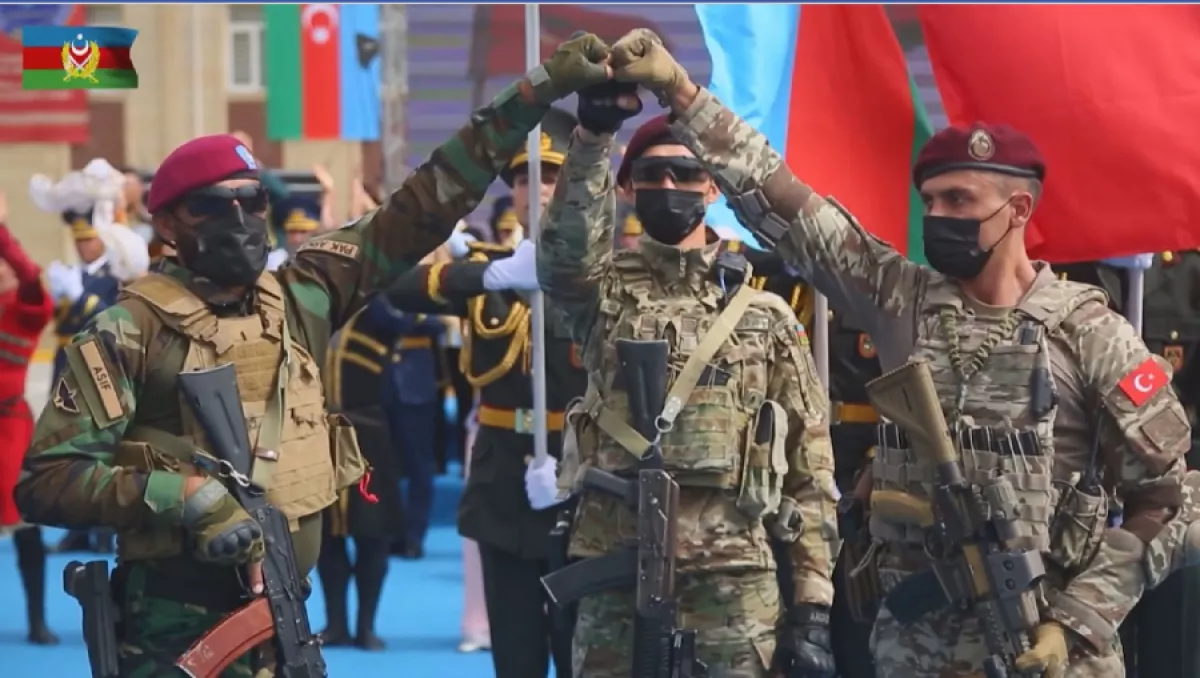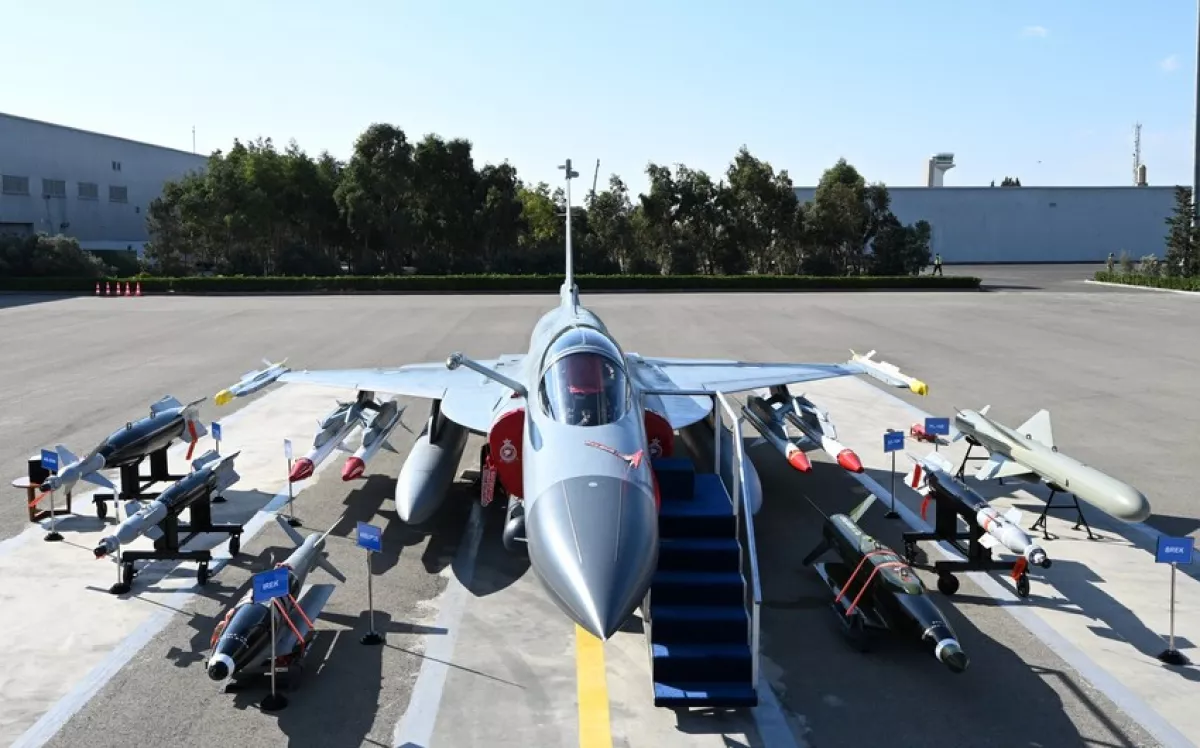South Caucasus defence race: India, Armenia, France vs. Azerbaijan, Türkiye, Pakistan Article by The Central Asia-Caucasus Analyst
The American publication The Central Asia-Caucasus Analyst published an article by Syed Fazl-e-Haider, dedicated to the arms race in the South Caucasus. Caliber.Az offers its readers a modestly modified version of the article.
India and Pakistan have had complicated relations since 1947. The two countries have fought three full-scale wars, mainly over the Kashmir region. They constantly accuse each other of instigating cross-border conflicts. Their rivalry also extended to the South Caucasus during the 44-day war between Armenia and Azerbaijan.
Islamabad supported Baku's position during the Second Nagorno-Karabakh War in 2020. However, close relations between the two countries existed even before this war, dating back to 1991. Pakistan was one of the first countries to recognize Azerbaijan's independence. Ankara and Islamabad condemned Armenia for its attack on Azerbaijan in the Karabakh region. Since then, they have consistently supported Azerbaijan's stance on the Karabakh issue in international forums. Pakistan even refused to establish diplomatic relations with Armenia. In turn, Baku supported Islamabad's position on the Kashmir dispute, which caused discontent in New Delhi.

Türkiye also supported Pakistan. The backing of Islamabad's position by Ankara and Baku raised concerns in New Delhi, which played a decisive role in strengthening the ties between India and Armenia. Over the past four years, New Delhi has significantly reinforced its defence partnership with Yerevan. Meanwhile, Azerbaijan, Pakistan, and Türkiye officially formed a trilateral alliance by adopting the Islamabad Declaration in 2021.
Consequences
The supply of military equipment by India and Pakistan has significantly reduced Azerbaijan and Armenia's dependence on Russia for arms and ammunition. In the past, both countries relied on Moscow for defence supplies. From 2011 to 2020, Russia accounted for 94 per cent of Armenia's main imported weapons. During the same period, Azerbaijan purchased armoured vehicles, air defence systems, Smerch rockets, multiple launch rocket systems, and tanks from Russia.
India considers Armenia a strategic partner in the South Caucasus. Armenia has become the largest foreign recipient of Indian weapons, with defence contracts signed since 2020 valued at 2 billion dollars. According to a report from the Indian Ministry of Finance, Yerevan has become a leading importer of Indian weapons, having signed deals to purchase Pinaka multiple launch rocket systems and Akash surface-to-air missile systems. This development reflects a significant reshaping of the region's defence landscape.
In September, Azerbaijan officially introduced the Pakistani fourth-generation JF-17 Thunder Block III fighter jets, marking an important milestone in defence cooperation between the two countries. This followed a deal signed in February for the acquisition of the aircraft, valued at 1.6 billion dollars. The deal includes not only the delivery of the fighter jets but also ammunition and pilot training. The advanced combat capabilities of these aircraft will strengthen Azerbaijan's military superiority in the South Caucasus.

Thus, New Delhi and Islamabad's entry into the regional defence market has provided Baku and Yerevan with the opportunity to diversify their military purchases, weakening their dependence on Moscow.
The arrival of South Asian countries in the region has led to the formation of two competing blocs. One alliance, called the "Three Brothers," includes Azerbaijan, Türkiye, and Pakistan, while the opposing group consists of Armenia, France, and India.
For New Delhi, Yerevan holds strategic importance as a potential bridge to access the vast market of the Eurasian Economic Union (EAEU). India views Armenia as a crucial transit hub for delivering Indian goods to European Union countries and sees its role in facilitating bilateral or multilateral partnerships with countries like Iran, France, and Greece to implement strategic projects aimed at strengthening ties in the South Caucasus.
At the same time, Islamabad considers its partnership with Baku critically important in countering New Delhi's influence in the region. Azerbaijan has also become a key player in the transit energy corridors linking the Black Sea, South Caucasus, and Europe, further enhancing its geopolitical significance.
Conclusions
Pakistan's defence cooperation with Azerbaijan and India's arms sales to Armenia form a new dynamic linking the South Caucasus and South Asia. New Delhi's military partnership with Yerevan is influenced by its geopolitical rivalry with Islamabad, which actively supports Baku's defense capabilities. For Pakistan, Azerbaijan is of particular importance as a potential partner in the energy sector, given the South Asian country's energy deficit.
India, for its part, aims to deepen cooperation with Armenia across all sectors of the economy, with a particular focus on defence. Yerevan's strategic position could also support New Delhi's initiatives to establish connections with Europe.
Meanwhile, Pakistan is likely to leverage its relationship with Azerbaijan to balance India's growing influence in the region, highlighting the interconnectedness and competitiveness of the geopolitical landscape of the South Caucasus and South Asia.
Editor's note: Syed Fazl-e-Haider is a Karachi-based analyst of the Wikistrat. He is a freelance columnist and the author of several books. He has contributed articles and analysis to a range of publications. He is a regular contributor to Eurasia Daily Monitor of Jamestown Foundation.








